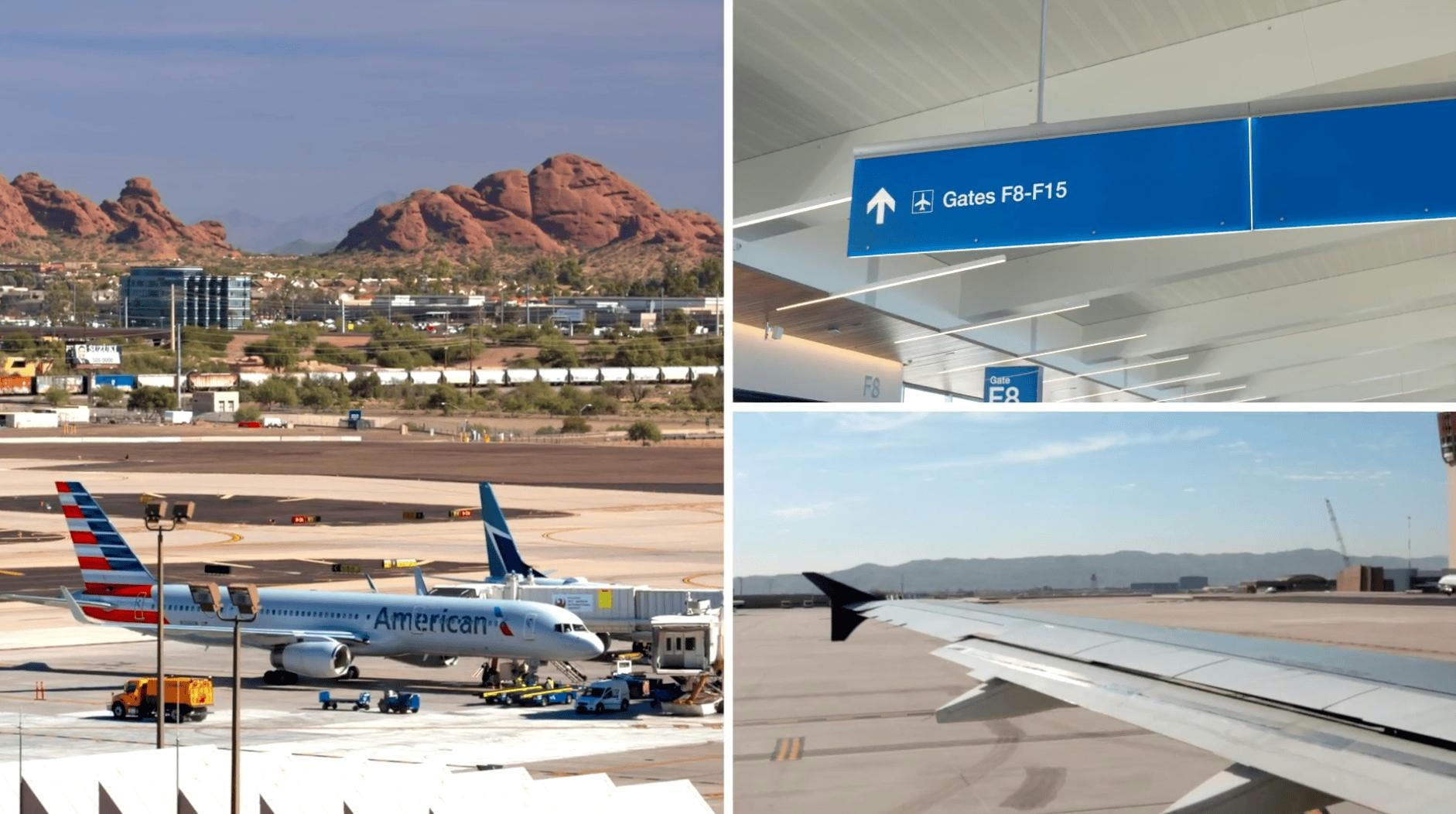AeroGenie — Your Intelligent Copilot.
Trending
Categories
American Airlines Launches AI Technology to Improve Flight Connections at Sky Harbor

American Airlines Introduces AI Technology to Enhance Flight Connections at Sky Harbor
American Airlines has implemented a new artificial intelligence (AI) system at Phoenix Sky Harbor International Airport aimed at improving the experience of passengers with tight flight connections. The technology is designed to briefly hold departing flights—generally for no longer than ten minutes—to help travelers make their connecting flights without significantly disrupting the overall schedule.
AI-Driven Real-Time Flight Management
Historically, decisions to hold flights for late-arriving passengers were made manually by gate agents. The newly introduced AI system automates this process by analyzing real-time data to determine when a flight should be held. This data-driven approach enables faster and more consistent decision-making, reducing passenger stress and enhancing operational efficiency.
American Airlines first tested the system during the busy Labor Day weekend, a period characterized by high passenger volumes and frequent delays. The airline reported that the AI successfully balanced the need to maintain on-time departures with the flexibility required to accommodate passengers at risk of missing their connections.
Passenger Responses and Operational Challenges
Reactions from travelers have been mixed. Some passengers have expressed appreciation for the system’s ability to reduce anxiety associated with tight connections. Courtney Sueldo, a recent traveler, remarked that even a short delay can alleviate concerns about missing a flight. Similarly, Lio Rose highlighted how mobile boarding passes and real-time updates complement the AI system, empowering passengers to better manage their journeys.
Conversely, some passengers have voiced concerns about the potential inconvenience caused to the majority of travelers when flights are held for a few individuals. Christine Matsunaga, for example, emphasized the difficulty of balancing individual passenger needs against the broader operational demands and the risk of disrupting subsequent flight schedules.
Industry Implications and Future Prospects
The deployment of AI-driven flight management at Sky Harbor reflects a broader industry trend toward integrating artificial intelligence in air travel operations. While American Airlines presents the technology as an advancement in customer service, skepticism remains among some passengers and analysts regarding its long-term effectiveness and privacy implications.
Competitors may respond by developing similar AI solutions or by critiquing American Airlines’ approach as emblematic of increasing automation and potential monopolistic tendencies within the airline industry. The recent backlash against Delta’s AI-based pricing strategies illustrates the delicate balance airlines must maintain between leveraging AI for efficiency and addressing consumer concerns about transparency and fairness.
Looking Forward
As American Airlines continues to refine its AI system, the airline faces the challenge of ensuring that technological innovation translates into tangible improvements in passenger experience without introducing operational complications. The success of this initiative at Sky Harbor could serve as a model for AI integration across the industry, contingent on its ability to meet both traveler expectations and operational requirements.

Capital A Completes Sale of Aviation Business to AirAsia X

Four Gateway Towns to Lake Clark National Park

PRM Assist Secures €500,000 in Funding

Should Travelers Pay More for Human Support When Plans Go Wrong?

InterGlobe Aviation Shares Rise 4.3% Following January Portfolio Rebalancing

Key Market Segments Shaping Airline Route Profitability Software

Locatory.com Gains Traction Among Aviation MROs and Suppliers

JetBlue Flight Makes Emergency Landing Following Engine Failure

58 Pilots Graduate from Ethiopian University

The Engine Behind Boeing’s Latest Widebody Aircraft
